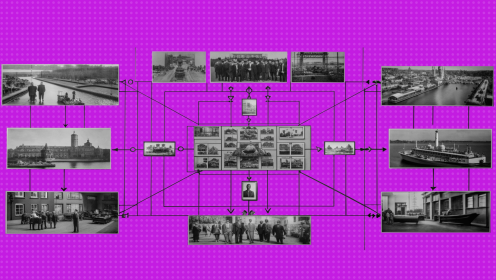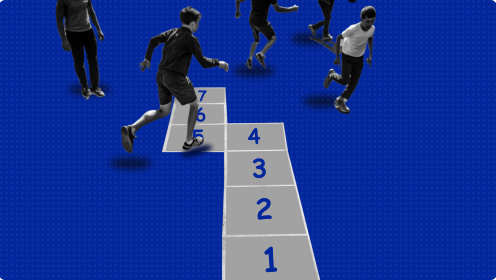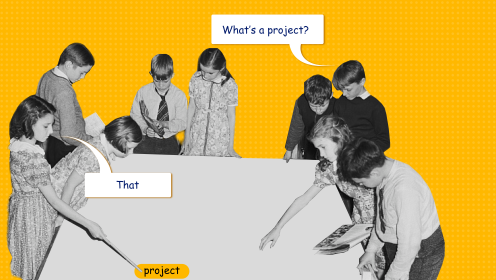"Some scientists" assure that Creative People shall not follow the usual rules of time management. Rules destroy creativity, they say.
Let's be honest. Time management is not about "time-scheduling" each other movement of the finger. Most creative people plan their activities, they simply do not always bring that plan into a system. They usually end up spending their energy and processing power until something went wrong, so they'd miss the deadline.
Meanwhile, there are a few templates for organizing creative activities. Interesting part: they were created by creative professionals who were struggling to optimize their working hours, not classical office suits. So, I do think these approaches could claim to really help you organize your efforts without breaking your creative way of thinking or inspiration.
Fasten your seatbelts, because I'm going to tell you about them right now :)
The Muse and the Beast. Miu Mau (Jana Frank)
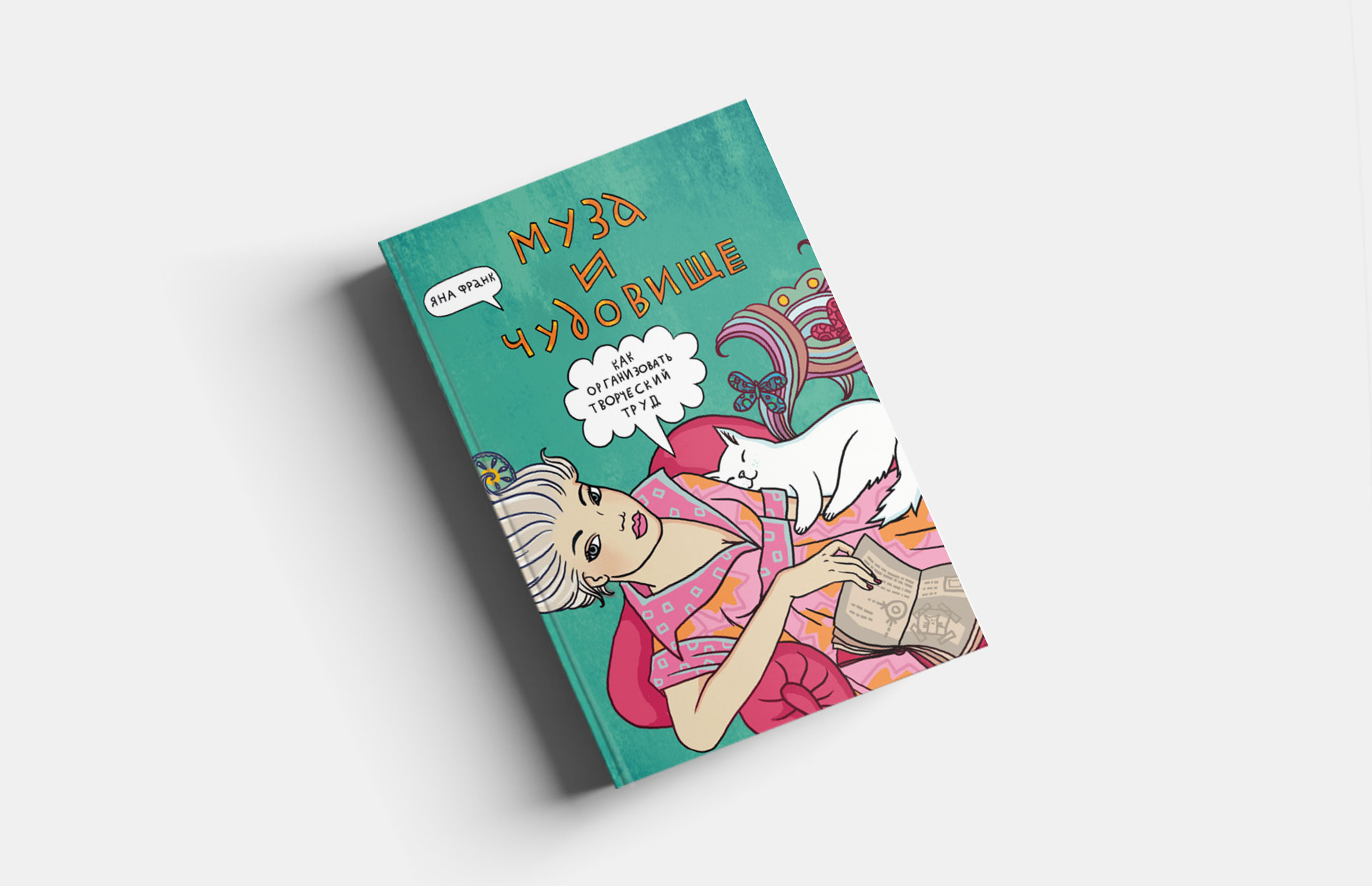
The book was written by Jana Frank, also known on the Internet as "Miu Mau". Let's get to know a couple of facts from her life in order to understand that the proposed template is not an idle talk.
Jana Frank — illustrator and designer. Born in Central Asia (former USSR), based in Berlin since 1990. By the age of 40, Jana had not only started a family, but have had achieved recognition in her profession without interrupting her travellin, writing and publishing efforts. She was the one to draw illustrations for all her books, she educates students and makes posts to her blog with 45,000 subscribers and 75,000-100,000 daily readers.
Among the companies that Frank had a chance to work with: Artemy Lebedev Studio, Swarovski, Alcatel, Davidoff, Hamilton Watch, Swatch, Renault, Afisha magazine, Big City, Burda, Rolling Stone, Vogue.
At the same time, Yana has been fighting cancer for 12 years.
Her system is very simple: plan and calculate the time and save strength and power without killing the Inspiration.
1. Find out what eats your time
This is all about timing. Over the course of three days, record everything you do: work, breaks, eating, resting, sleeping, talking on the phone, and so on. Then sit down and understand where all the time has gone. Double-win: you'll learn a lot about your own abilities and features. Just look for the areas or tasks where you have overestimated or underestimated yourself,... and here they come — all the hours that were lost during the day.
Yep, It is not sleep and rest that should be blamed for the lack of time, but the usual routine, postponed for later. So there is a creative mess. Come on, the so-called "Creative mess" does not contribute to the "flight of thought" at all! It takes time and motivation to move on instead, because now it's all turned into in an inoperable bunch of indigestible things!
To understand how to spend time wisely, you need to understand where exactly you spend it.
2. Write a routine list
Everyone has everyday activities — enjoyable and not too much enjoyable. Reply the mail, making coffee, washing hair, sorting the mail again — they're really person specific. The regular implementation of the same task for 20 days turns into a mechanical habit that does not require emotional or energy tasks. This task-list is useful when you got to distract yourself from the creative work. For example, when your eyes are “blurred”, whether you need to cope with unproductive emotions.
3. "I hate that list"
Many unpleasant tasks are simply impossible to escape. Whether they are terrifying for the performer or not, such tasks are still routine. These tasks are done through a much longer period of time than they should, so they are basically flushing your good emotional state elsewhere. How to get rid of such tasks forever? Love them.
It takes to understand and forgive to love (sic!). Just joking. You need to find out what exactly is so annoying about them. Poor working conditions are the most common source of the problem. For example, you have to sort through all the letters for the last 7 days each time you need to find the desired message. Or you have to delve in working chats each time you need a mockup. If you structure everything and complete the automatization in advance to remove everything unnecessary, the task will cease to be so hateful.
4. List of important things
This is a list of single or spontaneous affairs. This list is required to keep everything written. Keeping even 5 tasks in mind is hard work already, so you definitely do not want to overload your consciousness. It’s better to break up such cases into tasks, focusing on certain details to make the process even easier. It would also be nice, if you break these tasks down into checklists, since cleaning the closet, searching for information and talking on the Internet, talking on the phone can easily turn from minutes to hours if you don’t know where to start and when to finish. But even a simple list of important things will already relieve you of a huge headache.
5. Big picture plans list
This is for recording tasks that will take a lot of time: e.g. creative projects, apartment repairs and more. The Legend says that four it the optimal number for such projects. Collecting a larger number does not help you gain any more levels (honestly!). You can easily forget about them or lose the motivation during their achievement. It is better to add one new case as the previous one is completed. By the way, let me remind you that tasks must be adequate. Assess your capabilities frankfully.
6. 45 minutes / 15 minutes
If suddenly you are not a robot, then know that distracting from work is ok and, moreover, inevitable. A person can work productively on a task for no more than 40 minutes, then its thoughts go in a different direction. Jana Frank offers the 45/15 minutes timetable. The first (45 minute) part should be devoted to work, while the second (15) to the rest. 15 min are surely enough to calmly think about what has been done, aren't they?
You can see examples of such a division in educational institutions. All because it really allows you to work more productively.
Now, it may seem that such short periods of time will not allow you to focus on the task. But if you tracked up your daily time budget and results at the same time, you would pay attention that not much more was done, and often even less. Oh, and mind the quality :)
Give it a try by yourself.
7. Have to have a strategic plan
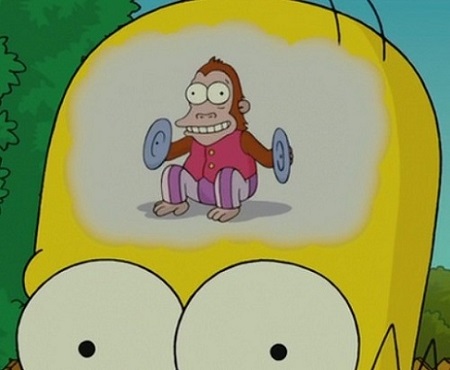
The One that, as many believe at least, is killing all the inspiration and freedom. To avoid panic, while searching for a muse under your working table or chair right before the deadline, plan your creative activities ahead. Even if there is nothing goes up in your mind, except a monkey knocking plates, you will have a wide selection of ideas that have long been in need of implementation later. So, you can work with fewer creative failures.
Another plus is that thinking and planning a large project, you can imagine how long it will take and how difficult would it be in advance. Devil is in the details and often he comes up as an unpleasant surprise.
8. Summarize
Arrange making calculations and bring up totals at the end of the day, week, month, year. Yes, it takes time, but arouses (and satisfies) curiosity, motivates to improve results. Finally, it is always nice to see that today was more productive than yesterday.
Don't Read this Book: Time Management for Creative People
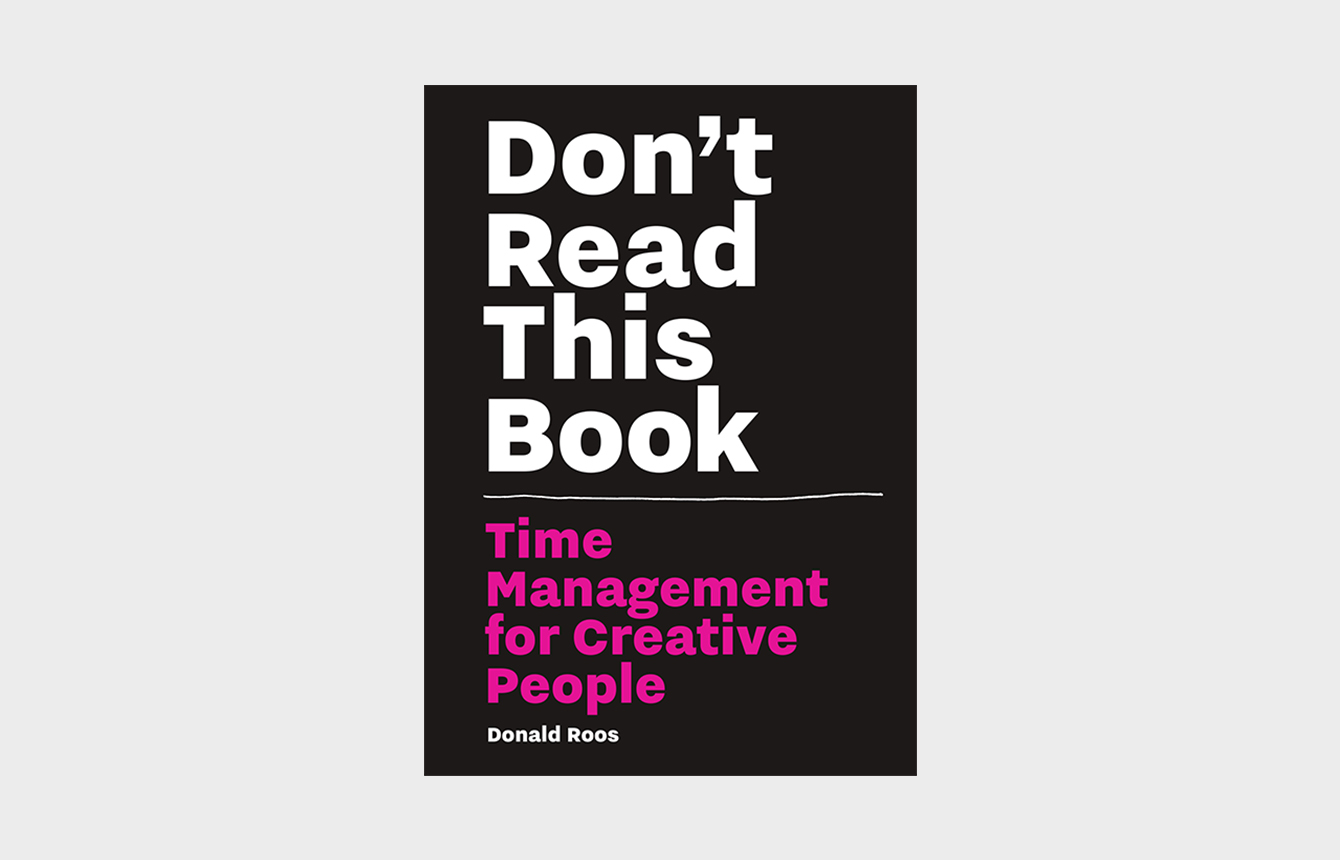
Donald Roos is a designer-entrepreneur. The system described in the book is based on his own experience. Here is a little sample of how it works:
1. To-do list
Thoughts, ideas and tasks come to mind continuously - one after another. And they constantly knock you off the workflow. Write them down as they have no place in your mind right at this moment.
2. Think of a NOT To Do List
The more things on the list, the less likely they are to be done. Therefore, start a list of NOT to-do. Here's what you should do:
- 1. Think about what tasks you really need to complete to complete the project.
-
2.
Cross out everything that comes after the third paragraph. These tasks are sent directly to the to-do list. This is what you won't do right now and you don’t need to think about it.
-
3.
A task from the to-do list cannot be completed until it reaches the to-do list.
What is the use here? No to-do list will teach you how to make decisions. When you have the right to only three tasks in your to-do list, only the important things will remain there.
3. Save time on the little things
Save time on the little things, so that you have time for something really important. For example, Mark Zuckerberg wears only hoodies, and Barack Obama wears blue or gray suits. Little things that can save someone up to 30 minutes a day.
4. Have a rest. Seriously, have it
Breaks are the utmost importance. Include them in your routine. It is not necessary to become a tired person to achieve more. Relax, spend time on fun. This will help you work better, when you really in a mood for a work.
5. It's time to sleep
Staying at work till the morning? Awesome, let's go!
At some point in this race, once the sharpen mind begins to become… well, not so sharp. It’s time to have some sleep, pal. It's way more productive to rest at night and get up earlier in the morning. Or arrange a 20-minute nap hour in the afternoon. If you're lucky enough, you will wake up fresh, insightful and happy. And probably you would do the same amount of work in much less time. And probably even better.
6. Do not answer all the calls
"Do I have to answer the call?" No, you haven't.
If you can catch yourself thinking: “I have to answer this call,” try reformatting it to: “I decide to answer this call.” Does this change anything? Yes. Now you are free from the obligation, but is free to decide whether to get this one up or not.
7. Social networks
Tips about mail and social networks are the most frequent in time management. It’s time to try it already. Although the advice of Donald has a slightly specific interpretation. Take a random entry, and see if the comment “Who cares?” is appropriate. What about the next entry? And the next one?
Such a comment is appropriate for 99% of posts on social networks. Now close the social network and do something useful.
8. Letter of five sentences
Write as short as possible. Stick to five sentences for the regular emails.
- 1. Hello.
-
2.
What do you send.
-
3.
Necessary details.
-
4.
Call to action.
-
5.
Goodbye.
"Hello Maria! In the application is the layout design that was discussed with you at dinner. Changed the color scheme to a lighter one. Please share some feedback on how do you like it now. Regards, John".
9. Unambiguity
Studies claim that ones with "multitasking brain" perform worse than people under the influence of marijuana. So, do one task after another, and not all together. Numbers 1 and 2 in this list will help you.
10. When urgency is more important
Sometimes a dilemma arises: urgency or quality. It is always better to show a less innovative solution in time, than fail to present a "genius one" at all.
And, speaking generally, simple solutions are not always bad. Often, excellent innovative decisions arise precisely because of the tight framework, price or timing.
Manage Your Day-to-Day: Build Your Routine, Find Your Focus, and Sharpen Your Creative Mind
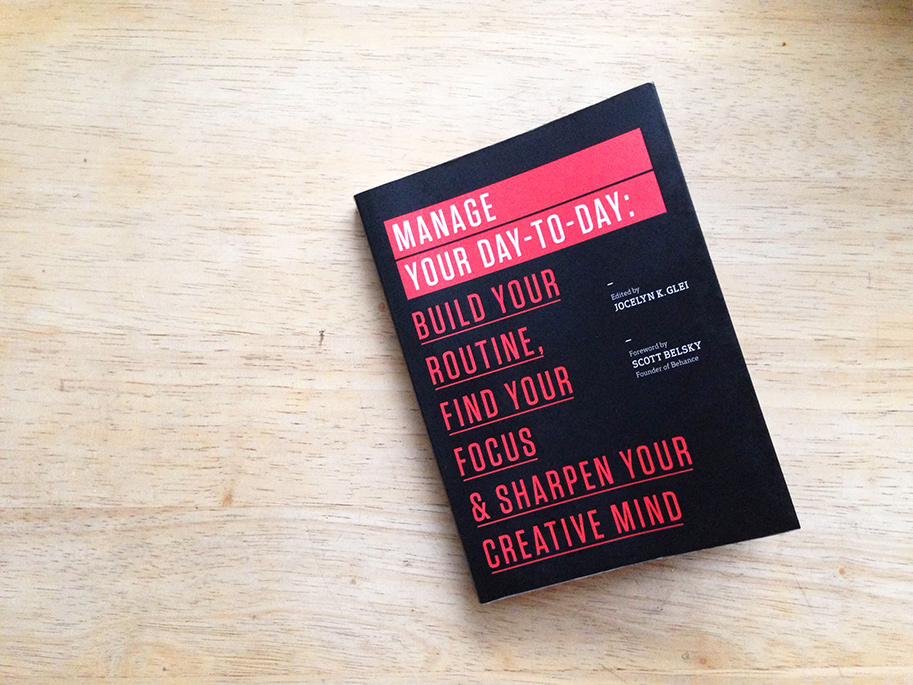
Jocelyn K. Glei is a writer obsessed with the idea that we can find more time for creativity in our daily lives. Jocelyn was the founding director of the Webby Awards-winning "99U" conference venue and the chief editor of 99u.com. She currently lives in Los Angeles and maintains her own personal blog.
This book consists of twenty comprehensive workshops from creative professionals. On its pages, famous creators share the principles that made them completely independent of inspiration.
1. When work is getting better
Due to biological rhythms, there are certain periods of time during the day that are most suitable for the creative work. Determine at what time of the day your creative energy is at its peak, and devote this hours to solving creative problems. Do not make any appointments for these periods and do not waste this time solving any administrative tasks.
2. Creativity comes first
For a long time, Glay was unhappy with the speed of her writing. To do something about that, she had to change her habits. Now she takes a few hours every day just to write. So begins her working day and never makes an appointment in the morning, as she prefers to spend this time on what is important to her personally.
It wasn't easy, and it still isn’t. Particularly when I get phone messages beginning “I sent you an email two hours ago…!”
Jocelyn K. Glei
3. Creative atmosphere
Create a creative-friendly environment. Create associative bindings with objects. For example, if certain music helps you get into good working condition, listen only to it. Here, let's take a look at Stephen King (he is a famous writer btw):
There are certain things I do if I sit down to write…I have a glass of water or a cup of tea. There’s a certain time I sit down, from 8:00 to 8:30, somewhere within that half hour every morning. I have my vitamin pill and my music, sit in the same seat, and the papers are all arranged in the same places…The cumulative purpose of doing these things the same way every day seems to be a way of saying to the mind, you’re going to be dreaming soon.
Stephen King writes 10 pages daily. Each. Damn. Day.
4. Do not let the “What should I do today” list grow
Try to limit the number of tasks scheduled for the day. A small piece of paper 10 by 10 centimeters is enough. If you add new tasks to the list during the day, you probably won't have enough time to complete them. It kills motivation very often. Do you really need it? The vast majority of tasks won't be hurt if not done today.
5. Keep promises
Keep your promises and develop a system that will help you remember. This approach to business could help you to respond more effectively to the others' requests and make you a more pleasant person to cooperate with. And the main thing is the confidence that nothing is forgotten. You can calmly focus on the task that deserves attention right now!
So, what's coming next?
Everything is not as complicated as it might initially have seemed:
- Write everything down, do not keep it in mind.
-
Plan. This is a consequence of the first paragraph.
-
Work when you are able to work, do not work otherwise. Be honest with yourself.
-
Do not be distracted when working.
-
Use Weeek.
-
Pay attention to the books described above. Even if not everything suits you, there are still a couple of proven methods in their sleeves. If you feeling like having no spare time to read — this is the best moment to start.












